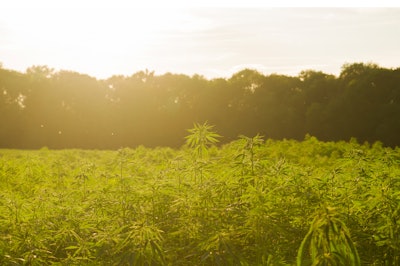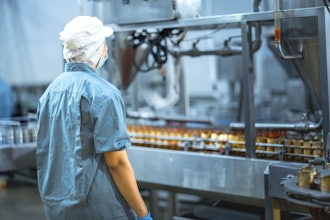
(PRNewswire) The Food and Drug Administration (FDA) is considering what it terms "potential regulatory pathways" for the interstate commerce of hemp and cannabis compounds in foods and beverages. This follows the renewal of the Farm Bill signed by President Donald Trump on December 20 that legalized the commercial production of hemp.
With this news in hand, the CBD products sector is expected to grow significantly. For starters, the FDA plans to hold a public meeting "in the near future" to hear from stakeholders about their experiences and challenges with the products, including any safety-related concerns. According to former FDA head Scott Gottlieb, the agency will being holding public meetings to "gather additional input relevant to the lawful pathways by which products containing cannabis or cannabis-derived compounds can be marketed, and how we can make these legal pathways more predictable and efficient."
The official word on food and drugs is "Cannabis and cannabis-derived products claiming in their marketing and promotional materials that they're intended for use in the diagnosis, cure, mitigation, treatment, or prevention of diseases (such as cancer, Alzheimer's disease, psychiatric disorders and diabetes) are considered new drugs or new animal drugs and must go through the FDA drug approval process for human or animal use before they are marketed in the U.S.," according to the FDA.
In the meantime, food and beverage makers aren't standing by when it comes to introducing the CBD and hemp products. Besides being used to infuse beverages such as water, coffee, tea, beer and wine, CBD is being added to all kinds of other foods, including ice cream, salads, milk and even children's cereal and pet treats. Other recent innovations containing CBD include things like Spring's line of CBD-infused sodas sold in New York, Florida, Nevada and Illinois.
Of course, the large food manufacturers seem to be acting with caution before rushing to add CBD or hemp to their products. But as more players enter the industry and new products start to gain traction, that is likely to change rapidly.
The market for CBD and hemp-derived products is already significant, and manufacturers and marketers are gearing up business on a national scale. A New Frontier Data report found that U.S. CBD sales jumped almost 40 percent in 2017, hitting $367 million. The total retail value of all U.S. hemp products last year — including food — was estimated at roughly $820 million. That's according to the Agricultural Marketing Resource Center.
These sales gains are expected to continue their upward trend. By 2020, hemp-derived CBD is projected to be a billion-dollar market, according to a report from the Brightfield Group that researches the hemp and CBD trends. This helps to explain why the FDA is striving to make its regulatory oversight clear to all stakeholders "as soon as possible".
As an important aside, it's worth noting that the new congressional session getting underway, there could be a move to legalize CBD in all food and drink products nationwide. That would only take place once a revised oversight and safety framework is in place. Companies with interest in the legal hemp and CBD business, often from Canada where cannabis is completely legal, will likely see the greatest early growth and market gains from new legislation and FDA support.




















